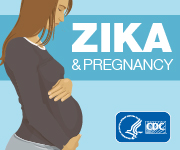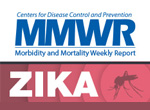COCA Email Updates: October 11 - October 24
If you have any questions on these or other clinical issues, please write to us at coca@cdc.gov
Available for download: October 24, 2016, COCA Email Update
COCA News and Announcements
Upcoming COCA Calls:
NEW:
What’s New for the 2016-2017 Flu Season: Recommendations for Children
Date: Thursday, October 27, 2016
Time: 2:00 - 3:00 pm (Eastern Time)
Dial In: 888-566-7688 (U.S. Callers); 517-308-9182 (International Callers)
Passcode: 1528968
Webinar: https://www.mymeetings.com/nc/join.php?i=PW1527852&p=1528968&t=c
Each year, an average of 20,000 children under the age of 5 are hospitalized because of flu-related complications. Clinicians have a critical role in taking action to immunize children, children’s family members and caregivers, and themselves. Use of antiviral drugs early in children can lessen the impact of influenza infection, but immunization remains the most effective means of preventing the flu and complications from the flu. For the 2016-2017 flu season, several new recommendations have been identified that particularly impact flu vaccination for children. During this COCA call, subject matter experts from the American Academy of Pediatrics (AAP) and the CDC will highlight this critical information and discuss strategies that primary care providers and medical subspecialists can use to improve flu prevention and control in children.
Archived COCA Conference Calls
Free continuing education credits (CME, CNE, ACPE, CEU, CECH, and AAVSB/RACE) are available for most calls. More information about free CE.
CDC Emergency Response
2016 Zika Virus
NEW: MMWR: Notes from the Field: Outbreak of Zika Virus Disease — American Samoa, 2016
Zika Virus Information for Healthcare Providers
UPDATED: Key Messages - Zika Virus
A collection of the most up-to-date and cleared information on the ongoing Zika virus outbreak.
Zika Training for Healthcare Providers
View recorded webinars and on-demand trainings.
Print Resources in Different Languages
CDC fact sheets and posters for distribution to patients are available in languages, including Spanish, Arabic, Tagalog, Vietnamese, Mandarin, Creole, and Korean. These resources cover a variety of topics, including travel information, insect repellent, sexual transmission, and mosquito control.
Clinicians Caring for Pregnant Women and Women of Reproductive Age
UPDATED: U.S. Zika Pregnancy Registry
CDC and state, tribal, local, and territorial health departments request that healthcare providers, especially obstetric and pediatric healthcare providers, participate in the US Zika Pregnancy Registry.
Clinical Guidance for Healthcare Providers Caring for Pregnant Women
Clinical Guidance for Healthcare Providers Caring for Women of Reproductive Age
Clinicians Caring for Infants and Children
NEW: Measuring Infant Head Circumference: An Instructional Video for Healthcare Providers in English and Spanish
CDC is working to ensure that infants with microcephaly and other brain abnormalities receive the services they need. Accurately identifying infants with microcephaly is crucial. The goal of this instructional video is to provide clinicians with the tools needed to accurately measure infant head circumference and length.
In English: https://www.youtube.com/watch?v=HWV1JdAhsSo
En Español: https://www.youtube.com/watch?v=tPBxXkIIjt0
NEW: Congenital Zika Infection: Assessment and Follow up of Infant Hearing
Clinical Guidance for Healthcare Providers Caring for Infants & Children
Sexual Transmission
Travel Information
Advice for People Living in or Traveling to South Florida
As of September 19, CDC has updated guidance for the Wynwood-designated area after three mosquito incubation periods passed without any new locally transmitted cases of Zika.
Clinical Evaluation and Testing
Clinical Evaluation & Disease
Zika virus is transmitted to humans primarily through the bite of an infected Aedes species mosquito. The most common symptoms of Zika virus disease are fever, rash, joint pain, and conjunctivitis. Most people infected with Zika virus are asymptomatic. Characteristic clinical findings are acute onset of fever with maculopapular rash, arthralgia, or conjunctivitis. Other commonly reported symptoms include myalgia and headache.
Testing for Zika Virus
Contact your state or local health department to facilitate testing.
State, Local, Tribal and Territorial Health Department Resources
State, Local, Tribal, and Territorial Health Department Resources
Interim CDC Zika Response Plan
The purpose of this document is to describe the CDC response plan for the first locally acquired cases of Zika virus infection in the continental United States and Hawaii.
Zika Community Action Response Toolkit (Z-CART)
The Z-CART outlines an approach to risk communication and community engagement planning and is intended as a template for state, local, and tribal agencies to adapt to their needs and to use for reviewing plans for communicating about Zika during the event of a locally transmitted Zika virus.
CDC News and Announcements
NEW: CDC Recommends Only Two HPV Shots for Younger Adolescents
CDC today recommended that 11- to 12-year-olds receive two doses of HPV vaccine at least six months apart rather than the previously recommended three doses to protect against cancers caused by human papillomavirus (HPV) infections. Teens and young adults who start the series later, at ages 15 through 26 years, will continue to need three doses of HPV vaccine to protect against cancer-causing HPV infection.
CDC Science Clips: Volume 8, Issue: 42
Each week select science clips are shared with the public health community to enhance awareness of emerging scientific knowledge. The focus is applied public health research and prevention science that has the capacity to improve health now.
Public Health Preparedness
Emergency Preparedness and Response - (CDC)
Find preparedness resources for all hazards.
Emergency Preparedness and Response Training Resources for Clinicians – (CDC)
Find online and in-person training resources.
Natural Disasters and Severe Weather
Hurricanes and Other Tropical Storms – (CDC)
Food and Water Needs: Preparing for a Disaster or Emergency – (CDC)
Health and Safety Concerns for All Disasters – (CDC)
Morbidity and Mortality Weekly Report (MMWR)
The MMWR series is CDC’s primary vehicle for scientific publication of timely, reliable, authoritative, accurate, objective, and useful public health information and recommendations. To subscribe electronically, go to. Electronically Subscribe.
October 7, 2016 / Vol. 65/Nos. 41 Download .pdf document of this issue
- Declines in Opioid Prescribing After a Private Insurer Policy Change — Massachusetts, 2011–2015
- National Progress Toward Hepatitis C Elimination — Georgia, 2015–2016
- Status of New Vaccine Introduction — Worldwide, September 2016
- Vital Signs: Dental Sealant Use and Untreated Tooth Decay Among U.S. School-Aged Children
Infectious, Vector-Borne, and Zoonotic Diseases
Seasonal Influenza
NEW: CDC Digital Media Toolkit: 2016-17 Flu Season- (CDC)
With flu season just around the corner, CDC relies heavily on its network of partner organizations to promote its messages and activate communities to get vaccinated. To assist in your efforts to help spread the word about the serious complications the flu can cause and the importance of vaccination, this guide provides details for events/activities, sample social media and newsletter content, website badges, and online resources.
CDC Director Kicks Off 2016-2017 Flu Vaccination Campaign - (CDC)
CDC and the National Foundation for Infectious Diseases (NFID) along with other public health and medical groups kicked off the 2016-2017 flu vaccine campaign at a telebriefing held at the National Press Club in Washington, D.C.
2015–2016 Flu Season - (CDC)
Influenza Vaccination Information for Health Care Workers - (CDC)
Information for Health Professionals– (CDC)
Weekly Flu View - October 1 – (CDC)
Flu View is a weekly influenza surveillance report prepared by CDC Influenza Division. All data are preliminary and may change as CDC receives more reports.
Planning and Preparedness: Health Professionals and Seasonal Flu – (HHS)
Healthcare providers play an important role during flu season. The following guidance and information will assist healthcare providers and service organizations to plan and respond to seasonal flu.
Travel Safety
Current Travel Warnings
- October 7 (US Department of State)
The U.S. Department of State issues Travel Warnings when long-term, protracted conditions make a country dangerous or unstable. Travel Warnings recommend that Americans avoid or carefully consider the risk of travel to that country. The State Department also issues Travel Warnings when the U.S. Government's ability to assist American citizens is constrained due to the closure of an embassy or consulate, or because of a drawdown of State Department staff.
Food, Drug and Device Safety
NEW: Pharmacists on the Front Lines of Opioid Overdose Prevention
Pharmacists and prescribers share a common goal of ensuring safe and effective treatment for patients. CDC released a new brochure developed specifically for pharmacists that outlines the pharmacist’s role in curbing the opioid epidemic and offers tips on how to engage with patients. The brochure is part of a suite of CDC-published user-friendly resources for patients and providers, related to the CDC Guideline for Prescribing Opioids for Chronic Pain.
NEW: Official CDC Health Alert Network (HAN) Health Advisory - CDC Advises Hospitals to Alert Patients at Risk from Contaminated Heater-Cooler Devices Used during Cardiac Surgery
CDC is advising hospitals to notify patients who underwent open-heart (open-chest) surgery involving a Stöckert 3T heater-cooler that the device was potentially contaminated, possibly putting patients at risk for a life threatening infection. New information indicates that these devices, manufactured by LivaNova PLC (formerly Sorin Group Deutschland GmbH), were likely contaminated with the rare bacteria Mycobacterium chimaera during manufacturing.
UPDATED: Multistate Outbreak of Shiga toxin-producing Escherichia coli O157:H7 Infections Linked to Beef Products Produced by Adams Farm (Final Update)
This outbreak appears to be over. However, the recalled beef, veal, and bison products may still be in freezers. Consumers who don’t know about the outbreak could continue to eat recalled products and get sick.
MedWatch: The FDA Safety Information and Adverse Event Reporting Program
– (FDA)
MedWatch is your Food and Drug Administration (FDA) gateway for clinically important safety information and reporting serious problems with human medical products.
FoodSafety.gov: Reports of FDA and USDA Food Recalls, Alerts, Reporting, and Resources – (HHS/USDA/FDA/CDC/NIH)
Foodsafety.gov lists notices of recalls and alerts from both FDA and USDA. Visitors to the site can report a problem or make inquiries.
The CDC and HHS logos are the exclusive property of the Department of Health and Human Services and may not be used for any purpose without prior express written permission. Use of trade names and commercial sources is for identification only and does not imply endorsement by the US Department of Health and Human Services.
Links to non-Federal organizations are provided solely as a service to our users. Links do not constitute an endorsement of any organization by CDC or the Federal Government, and none should be inferred. The CDC is not responsible for the content of the individual organizations.
- Page last reviewed: October 12, 2016
- Page last updated: October 26, 2016
- Content source:
- Maintained By:





 ShareCompartir
ShareCompartir